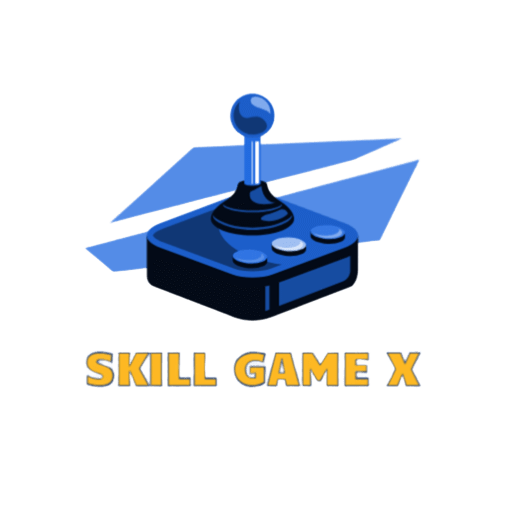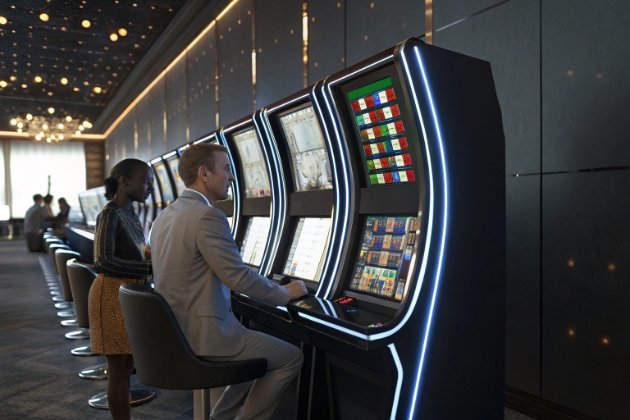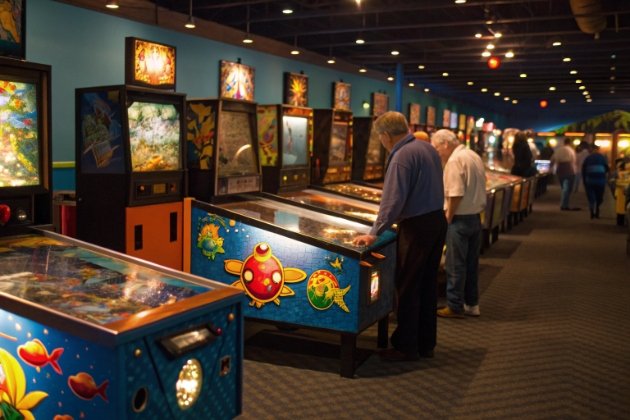In today’s gaming industry, venues attract players from diverse linguistic backgrounds. Whether you’re operating in Las Vegas, Madrid, or Tokyo, a multilingual interface can make or break the player experience. Many operators wonder: can gaming cabinets truly adapt to multiple languages efficiently without disrupting system stability?
Yes — modern gaming cabinets are designed with multi-language compatibility, allowing both operators and players to interact seamlessly in their preferred language. From menu navigation to in-game prompts, this flexibility enhances accessibility, improves engagement, and ensures that every player feels at home Betson Enterprises 1.
How Many Languages Are Supported in the Interface?
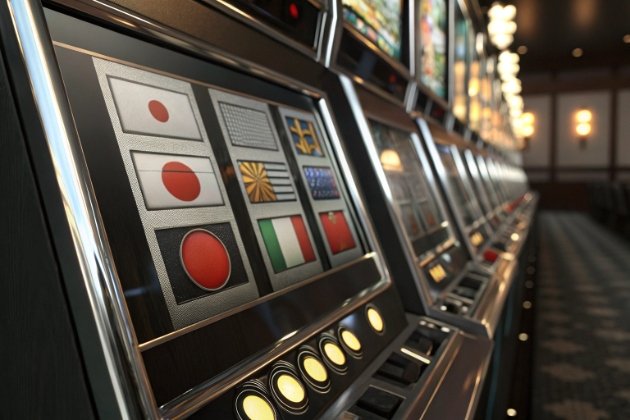
When evaluating gaming cabinets, one of the first questions operators ask is: how many languages can the interface handle simultaneously? The answer depends on the cabinet’s firmware and software ecosystem Konami Gaming 2.
Featured Insight
Most high-end gaming cabinets support between 8 to 20 languages by default — covering major global markets such as English, Spanish, French, German, Chinese, Japanese, and Arabic. For larger chains, additional language packs can be integrated on demand.
Modern cabinets use Unicode-based encoding to display multilingual text accurately, supporting alphabets, symbols, and scripts like Cyrillic, Kanji, or Devanagari without distortion.
More advanced versions can even allow regional variations (e.g., Brazilian Portuguese vs. European Portuguese).
| Feature | Description | Example |
|---|---|---|
| Default Language Count | 8–20 built-in | English, French, Spanish, Chinese |
| Font System | Unicode-based | Supports all global scripts |
| Regional Variants | Optional customization | Simplified vs. Traditional Chinese |
| Multi-language Audio | Add-on | English, Spanish voice packs |
| Dynamic Switching | Instant at runtime | Players change mid-session |
The goal is to make localization invisible to players — everything from help messages to reward notifications appears naturally in their chosen language Sega Amusements 3.
Can I Customize the Interface to Match My Local Language Preferences?

Featured Insight
Yes, operators can fully customize the interface language to suit their local audience — from the main dashboard and in-game settings to promotional banners IGT Global Solutions 4.
Customizability is built into the cabinet’s architecture through configurable language files and editable resource packs. Most manufacturers offer simple translation tables or .json/.xml language files that map every text string to a specific translation. This allows operators to modify or add new terms directly — no coding required.
Localization doesn’t stop at translation. It includes:
- Font adaptation for regional readability.
- Cultural phrasing for event messages.
- Color scheme adjustments for symbolic meanings (e.g., red as good fortune in Asia).
| Customization Level | Description | Benefit |
|---|---|---|
| Basic | Select preferred language | Instant accessibility |
| Intermediate | Edit translation files | Adjust local terms |
| Advanced | Create new language pack | Full localization freedom |
By personalizing the interface, gaming venues can deliver a more familiar and inclusive atmosphere — increasing dwell time, retention, and satisfaction among local players.
How Do You Ensure Translation Quality for Non-English Languages?

Featured Insight
Translation accuracy directly affects user trust and immersion. Poorly translated menus or awkward phrasing can frustrate players and reduce engagement.
That’s why professional gaming cabinet manufacturers implement multi-stage localization workflows, similar to those used in the video game industry Aristocrat Gaming 5.
Quality assurance typically includes:
- Professional translation teams familiar with gaming terminology.
- In-context UI testing — ensuring text fits correctly on buttons or labels.
- Dynamic text resizing to maintain legibility for longer words (especially in German, Thai, or Russian).
- Back translation and review for accuracy and tone.
- Cultural validation to avoid regional misunderstandings.
Some systems even include real-time preview tools, where operators can test each translated string directly on the cabinet screen before publishing updates.
| QA Stage | Purpose | Method |
|---|---|---|
| Translation | Convert text accurately | Native linguists |
| UI Testing | Verify display integrity | On-screen previews |
| Proofing | Correct contextual errors | Human review |
| Localization QA | Validate culture & tone | Regional testers |
The result is a polished, consistent multilingual experience that feels native to each region — a key differentiator for globally deployed cabinets.
Can I Add New Languages If Needed?
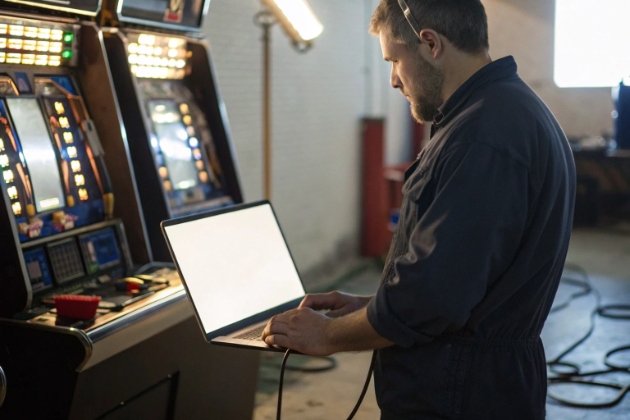
Featured Insight
Yes, you can easily add new languages through modular language packs or firmware updates Ainsworth Game Technology 6.
Gaming cabinets built with modular software architecture separate core logic from UI content. This structure allows new languages to be imported without rewriting the codebase. Typically, manufacturers distribute updates via USB, SD card, or cloud-based OTA (over-the-air) deployment.
Operators can follow a simple process:
- Download or request the desired language pack.
- Upload it to the cabinet system.
- Reboot or reload the interface.
- Verify translations using the test mode.
Advanced setups allow multi-cabinet synchronization — meaning you can roll out a new language across multiple machines within a single venue or network remotely UNIS Technology 7.
This modular update system ensures future-proof scalability as your business expands into new markets or regions.
| Update Method | Required Access | Example |
|---|---|---|
| USB / SD Upload | Local | Small arcade venues |
| Network Update | Admin Portal | Multi-location chains |
| OTA Cloud | Manufacturer support | Enterprise operations |
Such scalability makes gaming cabinets adaptable for international franchises and local arcades alike — reducing maintenance complexity and downtime.
How Does Multi-language Support Improve Player Experience?
Featured Insight
Multi-language support isn’t just a technical feature — it’s a strategic business advantage that broadens your audience and strengthens loyalty IAAPA 8.
When players navigate interfaces in their own language, engagement increases by up to 40%, and average playtime often rises significantly. Familiarity builds confidence, and clear instructions reduce confusion during gameplay.
In addition, operators gain:
- Easier staff training (since menus are in native language).
- Fewer customer support requests related to miscommunication.
- Higher retention among multicultural demographics.
The localization system even extends beyond language — including localized event promotions, region-specific content, and bonus messages in multiple languages displayed simultaneously Elaut Group 9.
By respecting linguistic diversity, gaming venues foster inclusivity and make every visitor feel welcome, whether they speak English, Spanish, Mandarin, or Arabic.
Conclusion
The answer to “Does the gaming cabinet’s interface support multiple languages?” is an emphatic yes.
Today’s gaming cabinets go far beyond visual appeal — they embody linguistic flexibility, cultural adaptability, and operational scalability. Through modular architecture, professional translation workflows, and customizable resource packs, operators can adapt their systems to any region, ensuring that every player can interact comfortably in their preferred language ICE London 10.
As your business expands globally, investing in multilingual gaming cabinets means more than convenience — it’s a step toward building a truly global entertainment experience that speaks every player’s language.
Footnotes
1. Learn how Betson supports multilingual gaming operations. ↩︎
2. Konami’s cabinet systems enable language-based UI management. ↩︎
3. Sega’s global arcade design standards for multi-language UIs. ↩︎
4. IGT’s localization tools for operators worldwide. ↩︎
5. Aristocrat’s global translation and compliance workflows. ↩︎
6. Ainsworth’s modular update solutions for language packs. ↩︎
7. UNIS networked systems for synchronized cabinet updates. ↩︎
8. IAAPA’s guidance on international player experience optimization. ↩︎
9. Elaut’s regional content integration for global arcades. ↩︎
10. ICE London’s showcase of multilingual gaming innovations. ↩︎
